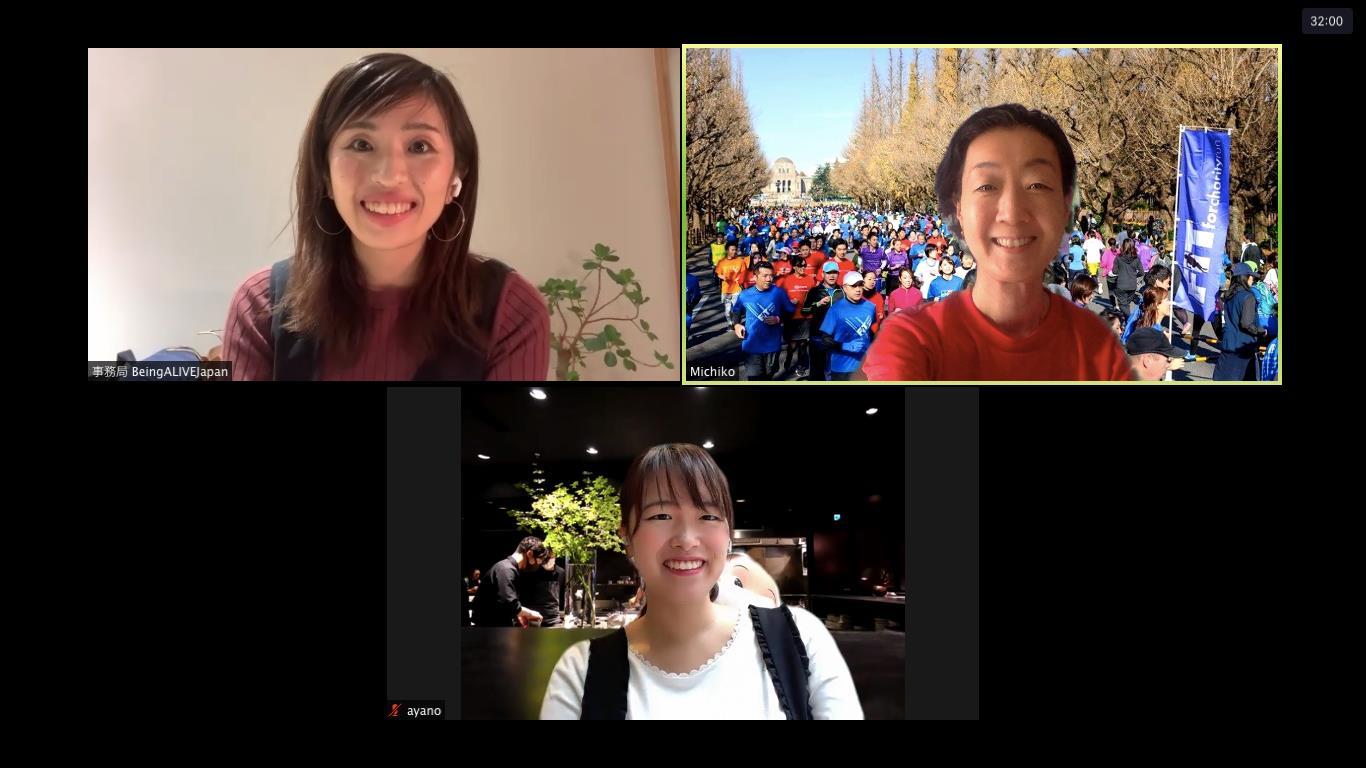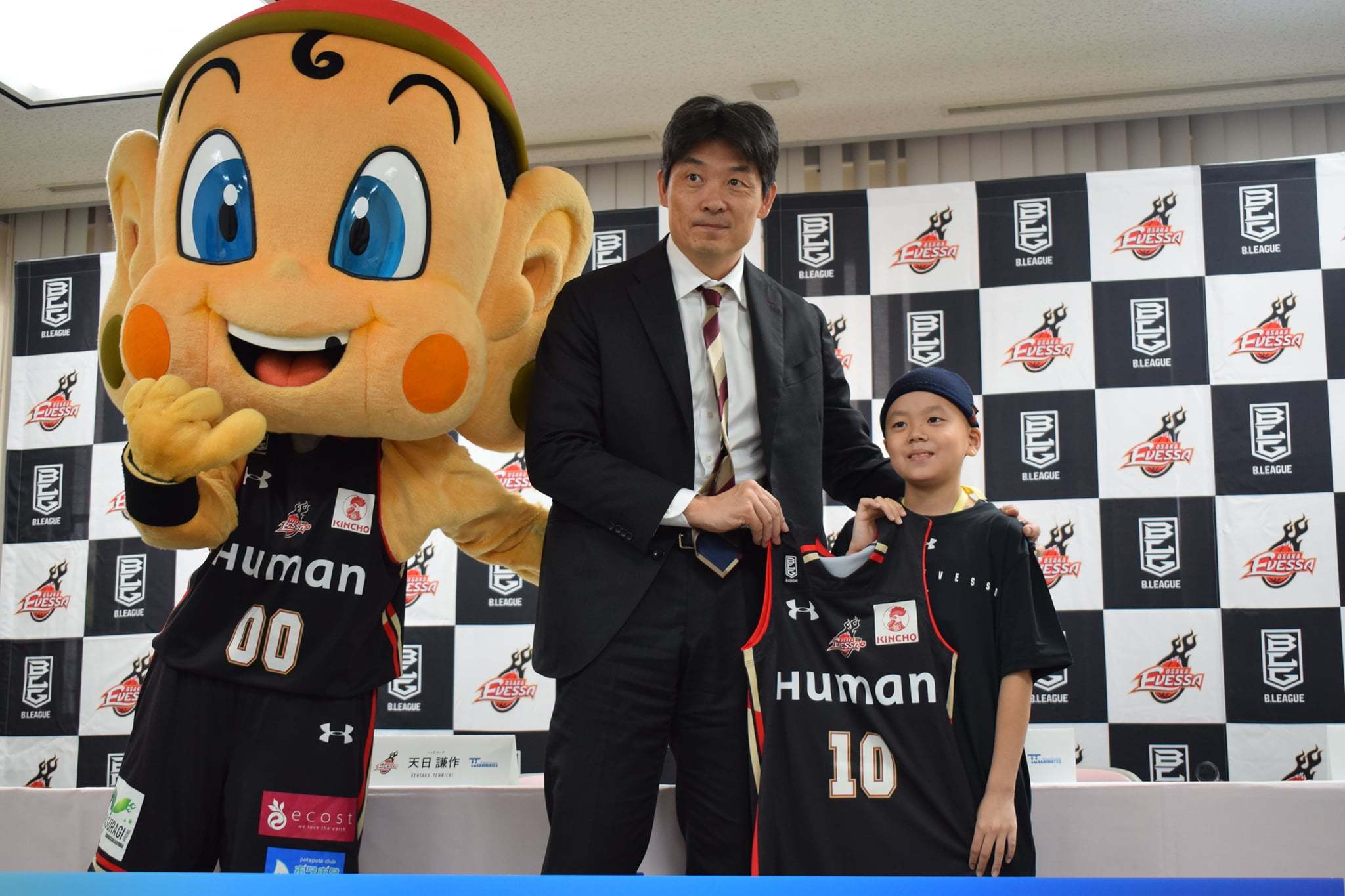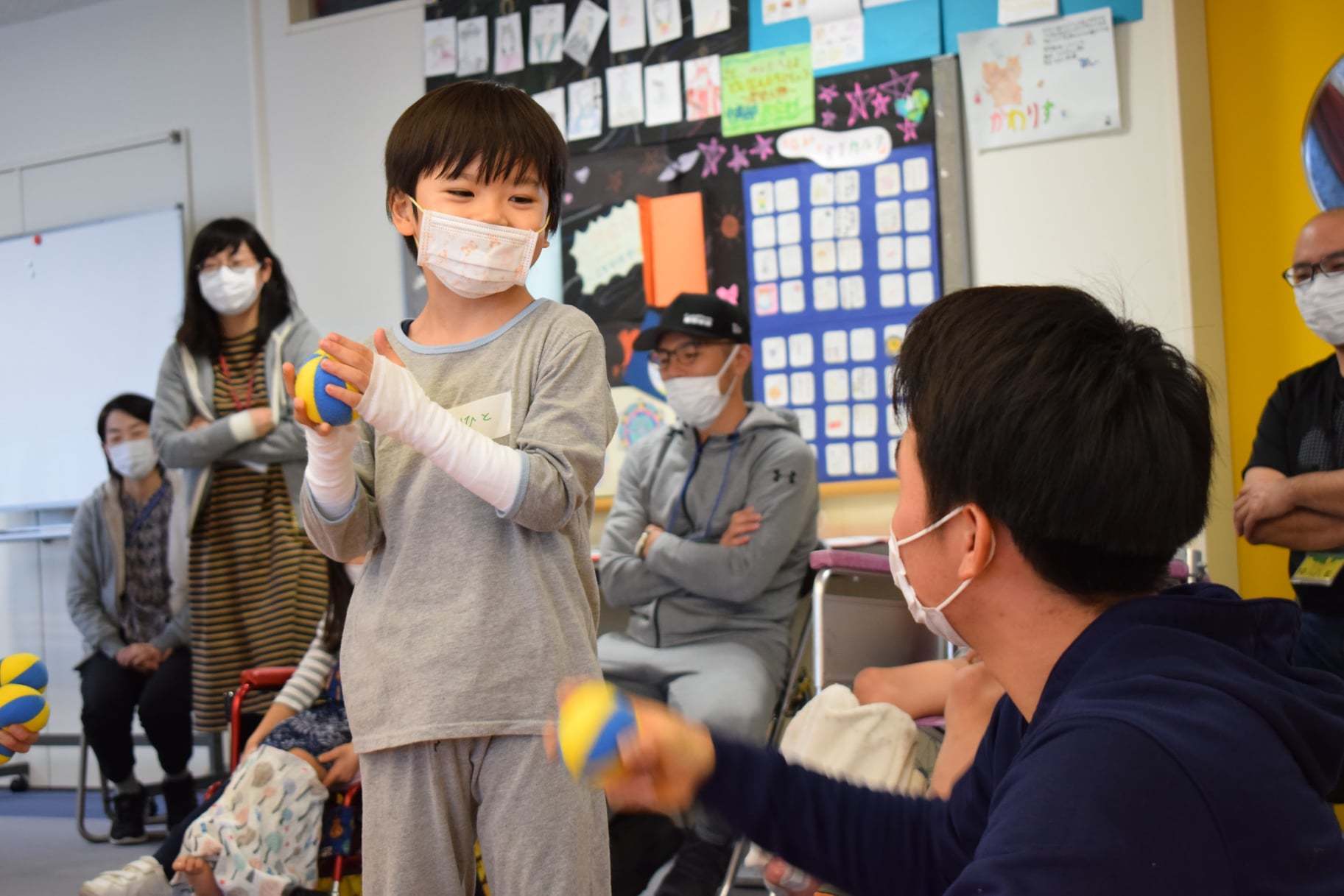Being Alive Japan
Being Alive Japan, one of our FIT 2019 beneficiary organisations, plans and proposes social activities to sponsoring athletes and sport teams looking to support children with intractable diseases or in the field of pediatric medical care, and provides long-term sports-related support to children needing long-term medical treatment. We spoke with Chairperson Hanako Kitano.

FIT: Could you tell us about your background and how you came to be involved with the organisation?
Kitano: I had been living in London since I was three but returned to Japan as I needed long-term medical treatment, and from there I had to go through repeated hospitalisation. At the time, I was able to find out about my illness and treatment on the Internet, but there was no information at all about what I could do as a child who needed this long term treatment. I didn’t want to give up enjoying my youth privilege just because I couldn’t do the same things as my peers due to treatments and long term hospitalisation. I set up this organisation as I wanted children to still enjoy their youth privilege, while going through treatment and rehabilitation and not to have to go through it alone but with peer support.
FIT: Tell us about the challenges and rewarding experiences you had in launching your organisation.
Kitano: The challenge was to communicate with the sponsors, the athletes, team members and volunteers, on how to interact with sick children and reduce their anxiety. Many are over cautious at first and there is a sense of distance towards such a child because the thought of their illness or disability comes first. They don’t know what they should be careful about, how much they should do, or can do. However, illness and disability are just a small part of the child’s characteristics. Of course, there are things to be careful about, but how one gets involved with such a child should be the same as with any ordinary child, as there should be no difference if the child is sick or disabled. At first, I had a hard time convincing them to see a child as any other child and not to see the sickness. It was a challenge to reduce the anxiety of the sponsor staff and athletes, and to create activities which actively engage with such children.
The good thing is that pediatric medical care has also changed their ways of treatment over the years. Instead of having to stay in hospitals for a length of time until the child is completely cured, it has changed towards intermittent treatment, where a child will receive treatment for a month in the hospital, return home for a limited time and start treatment again, few months after, or receive further treatment at home. Doctors have concerns in maintaining their physical strength, therefore were supportive of the idea of involving sports not only for physical strength but also for their psychological well-being. Children continue to receive treatment over a long period of time, hence, our support is long term rather than a one-time event. We hear from the medical staff that by providing these ongoing activities, children have become more motivated to undergo treatment with the aim of returning to their sporting team activities. In the past, conversations in the hospital were only about treatments, but now the children are eager to discuss their sporting activities, and we are getting positive feedback that the communication between medical staff, family and children have improved.
How has Covid-19 affected the charity?
Kitano: Currently, we cannot visit the hospitals or homes, therefore various activities have been cancelled. Children's contact with friends and the outside communities has been suspended, and we are concerned of their motivation towards the treatments. To connect with such children, we have started online communication. For example, we have a rugby player introducing an exercise, which incorporated the movements and elements of rugby, which was well received amongst children recuperating at home. Rugby players are eager to continue this with children in hospitals and we hope to turn this into regular online activity, especially for children needing longer term medical care during this pandemic.
FIT: Was the FIT donation used?
Kitano: The donation was planned to be used to fund the promotion and development of sports activities for children undergoing long-term treatment. However, because the activities could not be carried out due to Covid-19, we decided to change some of the usage and utilise it for the development cost and the operation cost to go online, to provide physical activity to children recuperating at home. We’d also like to use the funds to purchase mini rugby balls, including packaging and postage to provide to hospitals to continue the rugby workout online. We also like to purchase tablets and other equipment necessary for online activities. Similarly, we would like to develop online sports programs with other sports and use them as development costs.
FIT: What are your thoughts for the future?
Kitano: Although there is a limit to what we can do during this Covid-19, we have resumed the activities for children on long-term care to join sports teams. Covid-19 did not stop from children getting sick, and support is still necessary. Instead of thinking about what we can’t do, we’ve decided to think about what we can do. Online activities have also provided opportunities for people to learn about our activities not only in Tokyo but in other areas of Japan. This may give us an opportunity to expand and support other areas. In addition, going online has given opportunities for children confined to their beds or in isolation rooms to connect with other children. We hope to connect them with the athletes in the future and to provide a wider range of activities.
Being Alive Japan
https://www.beingalivejapan.org/index.html



